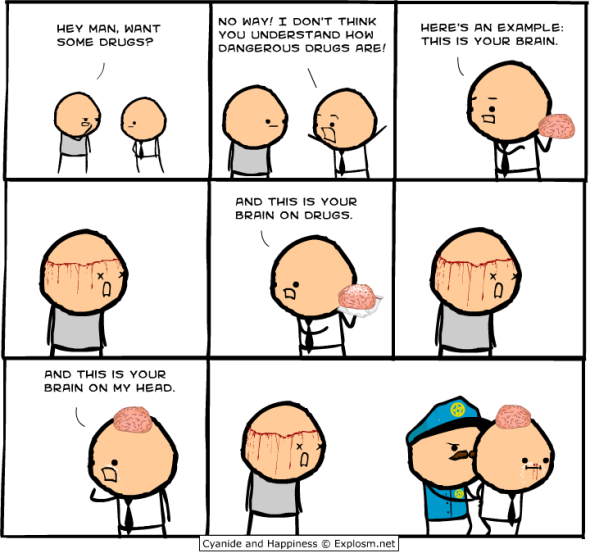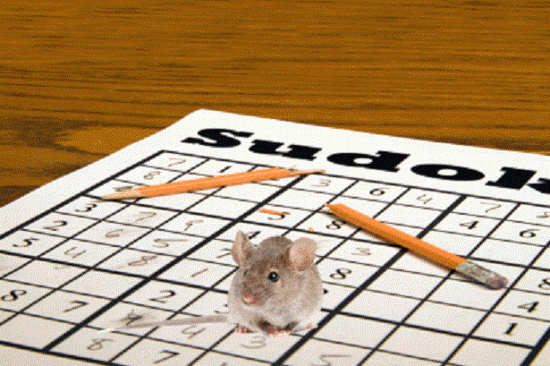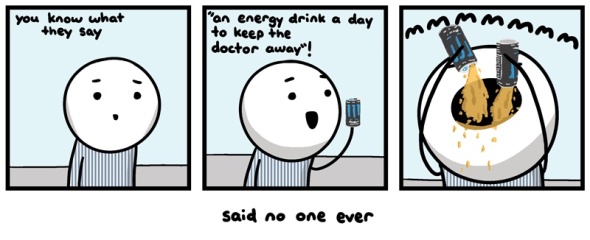Mental illness genetically linked to drug use and misuse

There are many reports of drug use leading to mental health problems, and we all know of someone having a few too many drinks to cope with a bad day. Many people who are diagnosed with a mental health disorder indulge in drugs, and vice versa. As severity of both increase, problems arise and they become more difficult to treat. But why substance involvement and psychiatric disorders often co-occur is not well understood.
Can cell phones make you feel less connected to your friends and family?


Image credit goes to: Eric Pickersgill
In this digital age, with phones at our fingertips, you would think that access to constant communication would make us feel closer to one another. But a new study shows that may not be the case. In fact, cell phone use might actually lead to feeling less socially connected, depending on your gender or cell phone habits.
Cardiac complications from energy drinks?

The high levels of caffeine in energy drinks may lead to cardiac complications. A new case report adds to previous reports of adverse cardiovascular events related to consuming energy drinks, including abnormal heart rhythms (arrhythmias).
How the brain makes — and breaks — a habit

Not all habits are bad. Some are even necessary. It’s a good thing, for example, that we can find our way home on “autopilot” or wash our hands without having to ponder every step. But inability to switch from acting habitually to acting in a deliberate way can underlie addiction and obsessive compulsive disorders.
Addiction, it’s in your genes… maybe


Image credit goes to: Cyanide and Happiness
Why does one person who tries cocaine get addicted, while another might use it and then leave it alone? Why do some people who kick a drug habit manage to stay clean, while others relapse? And why do some families seem more prone to addiction than others? According to a new study, the road to answering these questions may have a lot to do with specific genetic factors that vary from individual to individual.
Television viewing linked to higher injury risk in hostile people
People with hostile personality traits who watch more television than their peers may be at a greater risk for injury, potentially because they are more susceptible to the influence of television on violence and risk-taking behaviors, a University of Pittsburgh Graduate School of Public Health analysis discovered.
Nicotine changes marijuana’s effect on the brain
How scientists study the effects of marijuana on the brain is changing. Until recently marijuana research largely excluded tobacco users from its participant pool, but scientists have found reason to abandon this practice, uncovering significant differences in the brains of individuals who use both tobacco and marijuana and the brains of those who only use marijuana.
Preventing addiction relapse by erasing drug-associated memories
Recovering addicts often grapple with the ghosts of their addiction–memories that tempt them to relapse even after rehabilitation and months, or even years, of drug-free living. Now, scientists from the Florida campus of The Scripps Research Institute (TSRI) have made a discovery that brings them closer to a new therapy based on selectively erasing these dangerous and tenacious drug-associated memories.
Intellectual pursuits may buffer the brain against addiction

New study of mice finds that intellectual pursuits can make us more resistant to the lure of drugs Image credit goes to: Emily Strange)
Challenging the idea that addiction is hardwired in the brain, a new study suggests that even a short time spent in a stimulating learning environment can rewire the brain’s reward system and buffer it against drug dependence. Scientists tracked cocaine cravings in more than 70 adult male mice and found that those rodents whose daily drill included exploration, learning and finding hidden tasty morsels were less likely than their enrichment-deprived counterparts to seek solace in a chamber where they had been given cocaine.
Baby’s first stool can alert doctors to future cognitive issues
A newborn’s first stool can signal the child may struggle with persistent cognitive problems, according to Case Western Reserve University Project Newborn researchers. In particular, high levels of fatty acid ethyl esters (FAEE) found in the meconium (a newborn’s first stool) from a mother’s alcohol use during pregnancy can alert doctors that a child is at risk for problems with intelligence and reasoning.
The fingerprint drug test
Researchers have demonstrated a new, noninvasive test that can detect cocaine use through a simple fingerprint. For the first time, this new fingerprint method can determine whether cocaine has been ingested, rather than just touched.
Researchers find new clues in treating chronic pain
A chemical in the brain typically associated with cognition, movement and reward-motivation behavior — among others — may also play a role in promoting chronic pain, according to new research. The chemical, dopamine, sets the stage for many important brain functions, but the mechanisms that cause it to contribute to chronic pain are less well understood.
The adolescent brain on alcohol: Changes last into adulthood
Repeated alcohol exposure during adolescence results in long-lasting changes in the region of the brain that controls learning and memory, according to a research team at Duke Medicine that used a rodent model as a surrogate for humans. The study provides new insights at the cellular level for how alcohol exposure during adolescence, before the brain is fully developed, can result in cellular and synaptic abnormalities that have enduring, detrimental effects on behavior.
Belief’s effect on biochemistry in cases of addiction
Ever wonder what makes people susceptible to addiction? Think about it, some people can stop addictive painkillers without a problem and others, well others are not so lucky. So the big question is are there more than biophysical factors at play in addiction? A new study shows that cognitive beliefs play a significant role in a person’s neurological response to an addictive substance and that belief can diminish the neurological effects of an addictive drug.
Marijuana and the Developing Brain
You can’t get away from it, the big marijuana debate here in the US. Is it good? Is it bad? What are other countries doing? There are also a lot of claims made about marijuana, most of which aren’t true, namely the big medical claims. Then there is the other side of that fence, what about some of the health issues that are claimed, where does science sit on that?














